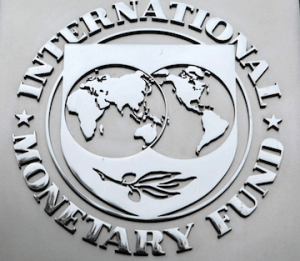IMF promises to protect vulnerable, poor Ghanaians
 The International Monetary Fund (IMF) says it will protect vulnerable and poor Ghanaians as the country looks for a support programme from the Fund amid the current economic challenges.
The International Monetary Fund (IMF) says it will protect vulnerable and poor Ghanaians as the country looks for a support programme from the Fund amid the current economic challenges.
The government wants the Bretton Woods institution to support its three-year Enhanced Domestic Programme aimed at ensuring macroeconomic stabilisation, restore investor confidence as well as fiscal and debt sustainability.
At the end of the week-long discussion, the team, led by its Mission Chief, Carlo Sdralevich, saw that: “Ghana is facing a challenging economic and social situation amid an increasingly difficult global environment.”
However, Mr Sdralevich, said that the team progressed in assessing Ghana’s economic situation and finding policy priorities in the near term, including improving fiscal balances sustainably to protect the vulnerable and poor.
The team also looked at ways to ensure credibility of the monetary policy and exchange rate regimes, preserving financial sector stability, and designing reforms to enhance growth, create jobs, and strengthen governance.
Providing details on the first findings of the country’s economic situation, he said: “The fiscal and debt situation has severely worsened following the COVID-19 pandemic.”
The Mission Chief added that: “At the same time, investors’ concerns have triggered credit rating downgrades, capital outflows, loss of external market access, and rising domestic borrowing costs.”
Furthermore, the global economic shock caused by the war in Ukraine was hitting Ghana at a time that it was still recovering from the COVID-19 pandemic shock and with limited room for manoeuvre.
Mr Sdralevich said: “These adverse developments have contributed to slowing economic growth, accumulation of unpaid bills, a large exchange rate depreciation, and a surge in inflation.”
He reaffirmed the international financial institution’s commitment to support Ghana consistent with the IMF’s policies, and said that they would watch the economic and social situation closely.
They would also continue to engage with the Ghanaian authorities in the coming weeks on the formulation of the Enhanced Domestic Programme that could be supported by an IMF arrangement and with broad stakeholders’ consultation.
The team was in Accra from July 6 to 13, 2022, to assess the current economic situation and discuss the broad lines of the Government’s programme to be supported by an IMF lending arrangement.
They met with Vice President, Dr Mahamudu Bawumia, Finance Minister, Ken Ofori-Atta, and Governor of the Bank of Ghana (BoG), Dr Ernest Addison.
The team also met with the Parliament’s Finance Committee, Civil Society Organisations (CSOs), and development partners, including the United Nations International Children’s Emergency Fund (UNICEF) and the World Bank to engage on social spending.
The meeting, expected to be completed in about six to seven months, when concluded, could make Ghana eligible for a credit facility of up to $3 billion under the IMF’s extended credit facility (ECF) and extended fund facility (EFF).
The funds would, however, be disbursed in tranches, with each tranche conditioned on the meeting of agreed economic and policy targets by the Government.
Some economic experts, trade and industry players have said that the programme with the IMF would repose confidence and bring stability to the Ghanaian economy, and enable the country to have access to the capital market, which had been closed to Ghana after downgrades by major global rating firms.
Source: GNA
